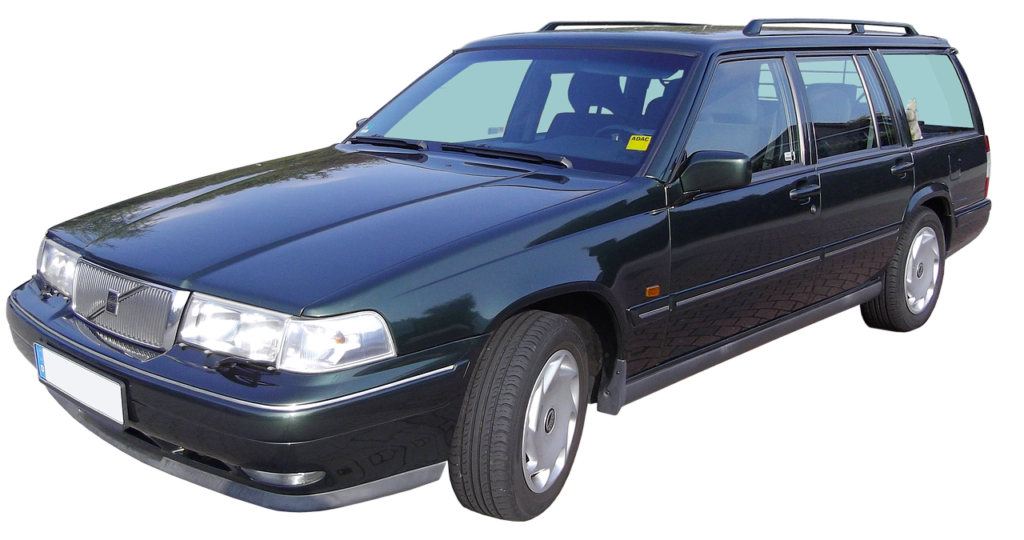
Image by Emslichter from Pixabay
Once a firm favourite for UK drivers, the estate car is rapidly becoming an endangered species on our roads. You know things aren’t healthy when Volvo, the king of estate cars, announces that they will be removing their leading estate models from the UK market. Yep, the once-mighty S60, V60 and V90 are being withdrawn from sale – except for the emergency services. The reason Volvo gives is straightforward: there’s just not that much demand any more. Those models now make up less than 10% of their UK sales, because everyone and his mother have swapped over to SUVs.
Now then. There’s no doubt that SUVs are great for many situations, but we reckon there are at least four good reasons why you might prefer a traditional estate.
1. Estates are just magic for shifting stuff around.
Let’s say your kids are getting a place together and you’re donating a hefty bookcase (because hey, they need something to keep their iPhones on). Fold the seats down on a Skoda Superb estate and you’ve got a colossal 1760 litres, enough to carry a small house. Just as important, the estate car allows loading and unloading at a more convenient height. That’s something your lumbar vertebrae will appreciate when you’re heaving suitcases in and out of the back!
Estate cars remain the king for shifting stuff around, unless you count those crazy American pick-up trucks.
2. Estates handle like cars, not towers on wheels.
Obviously, there are lots of different factors that contribute to how a car handles. But everything else being equal, a car that’s got a lower profile and lower centre of gravity is going to go round corners better than something shaped like a breadbin.
Admittedly, SUVs have made great strides forward in the handling department. But designers have to battle against the SUV’s defining characteristic: greater height. Meanwhile, many modern estate cars have excellent handling, with top models like the BMW M3 Touring “changing direction with incredible enthusiasm.”
And if you’re after straight-line petrol-powered speed, established models like the Audi RS4 and RS 6 are ready to melt your face off.
3. Estates are more economical.
There’s another problem with that nice high driving position which an SUV gives you: air resistance. The raised front profile of the SUV creates a lot of it, which means more energy is needed to overcome that. That translates into more frequent visits to the garage forecourt. Also, drag increases in proportion to the square of velocity …so at motorway speeds, that extra drag really starts to count. By contrast, the lower profile of estate cars tends to slip through the air more easily.
In the interests of fairness, we should point out that designers are working hard to reduce SUV drag – and with some success. For example, the Nissan Qashqai now has a drag coefficient of about 0.31, which rivals that of Volvo estate car stalwarts.
However, the other problem is that SUVs generally weigh more than estate cars. This problem could be mitigated by making smaller SUVs, but with manufacturers continuing to supersize all their vehicles, there’s not much chance of that.
Adding the extra weight and drag together, SUVs are unquestionably thirstier than traditional estate cars – typical figures we’ve seen range from 15% to 20% less efficient. That’s a huge difference for most people’s pockets, especially as fuel prices remain high.
There’s no escaping this inefficiency by going electric, either. If anything, this only magnifies the problem as bigger car bodies need bigger batteries to get decent range, which adds yet more weight.
4. Estates are better for the planet.
This one goes hand-in-hand with fuel economy. Estate cars burn less fuel. which means less CO2 and pollutants discharged into the atmosphere.
In fact, the rise and rise of the SUV has been gobsmackingly bad news for the planet. According to Wired magazine:
SUVs alone were the second largest contributor to the increase in global CO2 emissions between 2010 and 2018 – only behind the power industry.
As things stand, the global increase in SUV sales has managed to cancel out all of the lower emissions of electric cars. In the long run, that will change as EVs gain market share, but for the moment, it’s an SUV-sized problem.
Whether you choose an SUV or an estate car, we’re here to help. We are an independent garage serving the communities of Cardiff and South Wales, specialising in the VW group marques, including Audi, Volkswagen, Skoda and SEAT. WVS provides services, repairs and MOTs, delivering a main dealer level of care at affordable prices. To book your vehicle in, or for any enquiries, get in touch. The WVS blog covers a wide range of automotive topics, from the contentious to the light-hearted.
